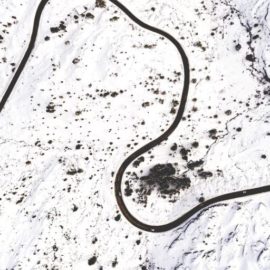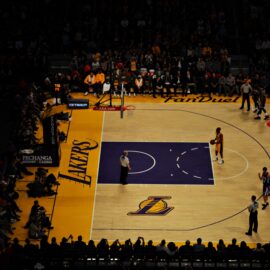
When and where was the greatest beer run ever? Who made it, and why?
In The Greatest Beer Run Ever—a book that inspired a film—John “Chick” Donohue and T. J. Molloy explore the uplifting story of Chick’s decision to support his buddies fighting in Vietnam. That support came in the form of an epic beer run.
Continue reading for an overview of the book.
The Greatest Beer Run Ever: Book Overview
Donohue got the idea from George Lynch (“the Colonel”), the bartender at Doc Fiddler’s in Inwood, New York. It was November 1967, and the conflict in Vietnam raged on the other side of the world. The idea was similar to another one, in which a young local sent care packages to hometown service members abroad. This time, the care packages would be beer—and Donohue would deliver them himself. The true story is told in The Greatest Beer Run Ever—a book by John “Chick” Donohue and J. T. Molloy.
Chick made thorough preparations for his journey. He collected the contact details of his comrades who were fighting in Vietnam. He packed American beer, symbolizing a taste of home and the support of their community.
Qui Nhon: Tommy Collins
Encountering Tommy Collins marked a pivotal point in Chick’s journey. Chick’s journey on a water taxi in Qui Nhon Harbor resulted in him encountering individuals from the 127th MP Company, among them Tommy Collins. After inquiring about Tommy, Chick was directed to a nearby cargo ship. Shouting for Tommy from the pier resulted in an unexpected and delightful reunion.
Tommy and his friend Chick shared a moment of laughter as they caught up, with Tommy commenting on Chick’s unconventional outfit for the occasion. They explored the local attractions and martial arts traditions as they traveled through Qui Nhon. Tommy’s bunkmates were amazed that Chick made the journey just to bring him a drink, underscoring the strength of their bond as noted by the authors.
Central Highlands: Kevin McLoone
Chick’s encounter once again with Kevin McLoone marked a significant event. Donohue and Molloy describe Chick as being conscious of Kevin’s location, who returned to Vietnam in a civilian capacity. If Chick had observed Kevin fixing the communication system of the helicopter at an airfield, it would have been a notable moment of recognition and relief in his search for his friends.
Chick handed out beers at room temperature to Kevin and his friends, who he introduced as Jim and Tony. After serving four years in Vietnam with the US Marine Corps’ HMM-261 helicopter squadron, Kevin later worked as a civilian contractor with Dynalectron, where he served as an aircraft electrician, installing signal-scrambling systems on chopper radios to help prevent the helicopters from being shot down.
DMZ: Rick Duggan
Chick contacted the parents of Rick Duggan to determine his location, aware that he was assigned to the First Air Cavalry Division. Donohue and Molloy describe Chick’s expedition with a supply convoy to the highlands, which might be his optimal chance to encounter Bravo Company and search for Rick.
Upon arriving at An Khe in Gia Lai Province, Chick found out that Bravo Company had advanced towards the DMZ. He journeyed with two young members from the same unit as Rick Duggan, known as Bravo Company. Overhearing the soldiers discussing a recent operation involving Bravo Company, Chick seized the opportunity to inquire about Rick’s location.
Chick determined Rick’s position and conveyed his objectives to the senior non-commissioned officer. Hidden under a cloak in a trench, Chick unexpectedly encountered Rick along with another individual and explained his mission of delivering ale. The unexpected reunion prompted laughter from the senior non-commissioned officer along with others who were amused by the situation. Chick met Rick at the site where the soldiers were stationed as guards along the forward perimeter. Initially baffled by Chick’s unforeseen appearance, the soldiers felt a surge of happiness when they realized he had brought beer, though they decided to delay their celebration until after the patrol was over.
Long Binh: Bobby Pappas
Chick’s determination to deliver a New York beer to Bobby and embrace him warmly is a touching scene in the narrative created by Donohue and Molloy. Long Binh was a substantial military installation, and Chick gained entry by convincing the gate MPs with his seaman papers and by asserting that Bobby Pappas was his step-sibling.
Upon entering, Chick was guided to the subterranean communications bunker where Bobby was positioned. Upon encountering Chick, Bobby loudly expressed his astonishment with a tone of utter disbelief. Chick casually greeted Bobby, who was taken aback to see Chick and inquired about his presence. Chick said he visited to offer Bobby a drink, showing appreciation on behalf of their mutual friends for his and their community’s contributions in Vietnam.
Chick engaged Bobby while wrapping up his tasks, discussing recent events from New York and conversing about the recent military operations in Vietnam and updates regarding Bobby’s family. Upon completing his shift, Bobby escorted Chick to his tent and provided him with additional uniforms to help him blend in on the military base. Bobby accompanied Chick to the PX where they bought a military-style jacket and had it embroidered to clearly indicate that Chick was a civilian, not a soldier, by adding the inscriptions “Chick Donohue” and “Civilian”.
Chick asked about Bobby’s well-being, and Bobby shared his eagerness to return home soon to see his son utter his first words. Bobby expressed his worries regarding the nearby ammunition storage, often targeted by enemy forces. Bobby outlined the base’s defenses and the strategic significance of the nearby Bien Hoa Air Base.
Chick and Bobby went to the enlisted men’s club, where Bobby, as a sergeant, could use the dining facilities. Chick and Bobby Pappas had to be cautious with their language at the bar, especially since Bobby’s commanding officer was present and he disapproved of swearing. Bobby’s commanding officer remarked on Chick’s civilian status, noting that Chick’s arrival coincided with his ship’s docking and his presence at the embassy during an attack.
Chick dedicated the whole day to being with Bobby in the communications bunker, following a night spent in a different bunk. They later visited a bar popular among GIs, where they exchanged stories and verified Bobby’s stories with his friends. Chick concluded his visit with plans to meet friends at a local pub to rejoice when Bobby came back from his service.
Chick decided to verify Bobby Pappas’s condition after the Long Binh explosion. If Chick had reached the location of a recent attack and discovered complete disarray, he might have frantically searched for his colleague, fearing the worst but hoping to find him unharmed. Bobby Pappas, along with a small group, endured an assault inside the bunker and initially felt anger, having misunderstood Chick’s prior assurance that the war had concluded.
After realizing the remark from Chick was intended as a joke, Bobby responded by laughing, happy to have seen him. Bobby described the assaults that occurred in the early hours, watching missiles hit a landing strip and anticipating their depot would be the next target. Bobby described the nationwide coordinated attack, for which they lacked readiness, despite some intelligence indicating a significant event.
The Impact of the Tet Offensive on Chick’s Journey
Chick arrived in Vietnam just as the Tet Offensive began, a large-scale assault carried out by soldiers from the North Vietnamese Army and the Vietcong throughout South Vietnam. This event, described by Molloy and referred to by Donohue as the most tumultuous climax during the conflict, led to widespread disorder and fighting, profoundly influencing Chick’s maneuvers and tactics.
Chick directly encountered the perilous situations within the urban environment of Saigon, such as the assault on the US embassy. Donohue and Molloy depict a scene of intense battle and dangerous conditions, where Chick maneuvers among street trees for protection. Armed individuals on the deserted streets signaled a significant disruption in usual activities and movements.
The Tet Offensive significantly restricted Chick’s ability to communicate and move around with his friends. The authors, Molloy along with Donohue, illustrate how the conflict constrained his options by using the case of Chick, who missed his ship and hastily journeyed to Saigon. The operation targeted Saigon, significant US installations, and essential American facilities, leading to numerous casualties and considerable disruption.
For instance, Donohue and Molloy highlight the chaos: if a soldier named John was attempting to navigate back to his unit’s base during the Tet Offensive, he might have faced hindrances from the aftermath of a recent mortar attack. Similarly, Chick’s effort to connect with Bobby Pappas at Long Binh was hindered by the offensive, which stopped him from reaching the location on the night of the explosion.
The simultaneous assaults during the Tet Offensive, particularly at the Long Binh ammunitions depot where Bobby was stationed, signified a crucial pivot for Chick. The attack resulted in a substantial decrease in the supply of bullets and led to casualties, including the death of four officers. Kevin McLoone recalled that for about a month, all operations ceased and areas were blocked off due to a significant military campaign, complicating the movement of Chick, as observed by Donohue and Molloy.
The Return Home
After his stint, Chick made his way back to the United States. One might imagine Chick experiencing a sense of relief and gratitude as he feels the solid ground beneath his feet, symbolizing his safe arrival, as recounted by the authors. Chick was eager to return to New York after his journey. If Chick possessed a close friend named Johnny who accompanied him during difficult times overseas, they likely would have exchanged a meaningful goodbye, acknowledging the bond formed from their shared experiences.
After his travels, Chick made his way back to New York City, initially landing at JFK Airport before catching a cab to the area of Inwood in Manhattan. After such a long absence, Chick could have felt a surge of nostalgia and anticipation as he directed the taxi driver towards his former neighborhood, ready to embrace the familiar sights and sounds of home. Donohue and Molloy skillfully illustrate Chick’s emotional revival.
Upon his return, Chick resumed interactions with the Colonel and other familiar faces from the local Inwood area. Chick directed the taxi driver to proceed to Doc Fiddler’s Bar, situated at the corner of Sherman Avenue and Isham Street, signaling the beginning of his journey. Upon arriving at the bar, Chick was immediately acknowledged and welcomed warmly, especially by Georgie Lynch, who was also known by his nickname, the Colonel.
The return of Chick was greeted with cheers, toasts, and storytelling among the bar patrons, among whom was the Colonel. Upon his return, the regulars at the local bar may have raised their glasses in a toast, exchanging tales and laughter to celebrate his safe arrival, as vividly illustrated by the authors.
Chick revealed that his friends Tommy, Rick, Kevin, and Bobby all successfully passed too. In a moment of camaraderie and relief, Chick felt prepared to declare to the audience that his companions, participants in the trials of a distant conflict, were all safe and would soon be joining them.
Upon his return, Chick received a warm welcome from his emotional parents at their New Jersey home, who were delighted to have him back safe and sound. Chick’s safe return brought relief, providing his family and friends with a cause for celebration. Donohue and Molloy depict the reunion as a moving tribute to the enduring bonds of family and friendship, enhanced by the deep comfort that comes with the safe return of a loved one.






